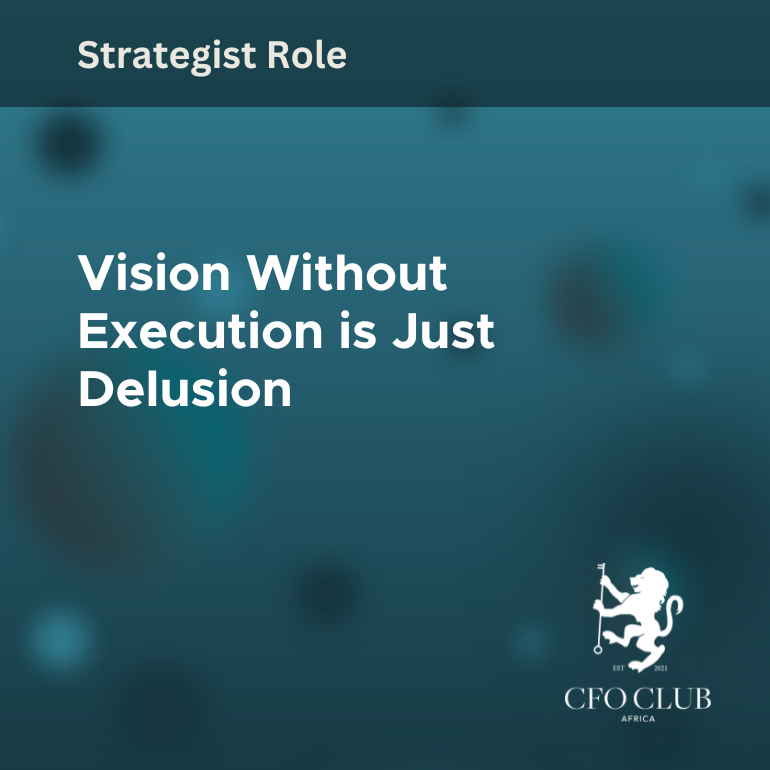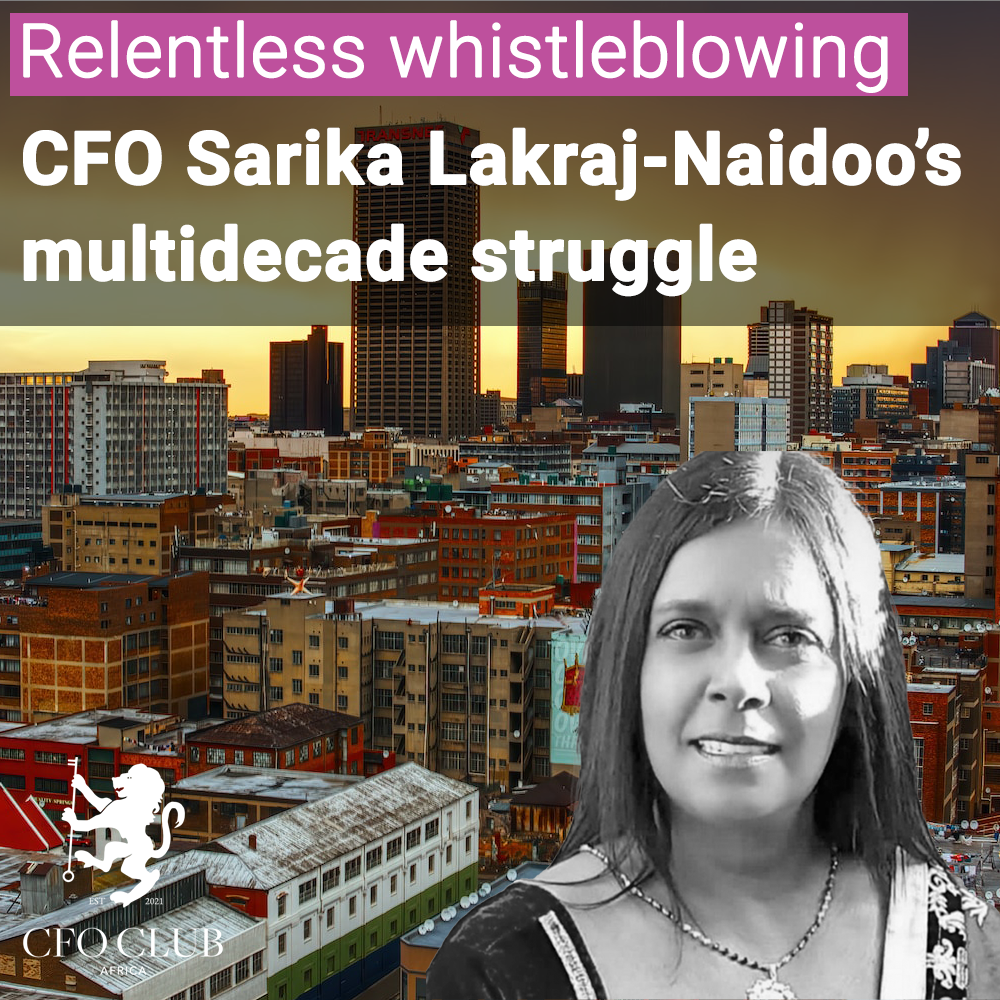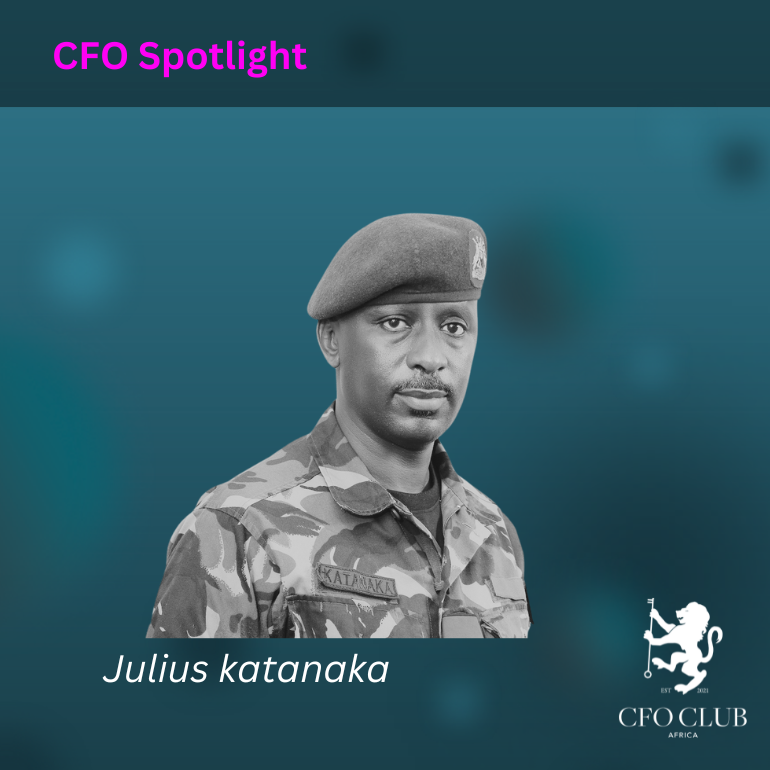Vision Without Execution is Just Delusion
Vision Without Execution is Just Delusion
There is a quiet epidemic spreading through executive boardrooms, and CFOs are not immune. It is called Strategic Posturing. It looks impressive from the outside, sounds inspiring in meetings, and feels productive when documented in a glossy strategic plan. But underneath the surface, most of it is just hot air.
Many CFOs claim to be strategic partners, but in reality, they are still stuck in the trenches of budget management and monthly reporting. They talk about innovation, transformation, and long-term growth, but when asked what has actually changed in the business as a result of these grand visions, the answer is often silence or worse, another round of strategy workshops.
Let us stop pretending. Vision is easy. Execution is hard. And for too long, CFOs have gotten away with focusing on the former and outsourcing the latter.
Strategy is Not a Vision Board
Writing a strategy is not the same as delivering one. Anyone can throw together a few buzzwords like “digital innovation,” “agility,” or “customer-centricity” and paste them onto a pretty PowerPoint. That is not strategy. That is branding.
Real strategy involves friction. It demands clear priorities, ruthless trade-offs, and serious operational planning. It means interrogating every line of the budget to ask: Does this help us execute, or is it dead weight? It means understanding where teams are stuck, where systems are failing, and where incentives are working against progress.
Without this level of engagement, strategy remains abstract. And when the CFO is disengaged from execution, no one else is held accountable for making the vision real.
CFOs Are the Real Chief Execution Officers
While the CEO may define direction, the CFO holds the controls. Every decision about resources, timing, trade-offs, and risk flows through the finance office. If the CFO does not understand how the strategy translates into the day-to-day realities of the business, then the plan is already in trouble.
Yet many CFOs stay at a safe distance. They sign off on budgets, monitor high-level KPIs, and trust that the operations team will figure it out. That is not strategic leadership. That is abdication.
The best CFOs go beyond forecasting and start interrogating. They ask who owns what. They ask whether the right people have the right tools and the right funding. They spot gaps, push timelines, challenge sacred cows, and make uncomfortable calls when needed.
Execution is not tidy. It is gritty, political, messy, and relentless. But if the CFO is not knee-deep in it, then the vision is already drifting.
PowerPoint Will Not Save You
Here is what typically happens with a corporate strategy. A group of executives spends two months in planning sessions. They produce a beautiful PDF full of ambition and inspiration. It gets emailed to staff with a hopeful subject line. There is a short burst of excitement. Then everyone goes back to their day jobs.
By the end of the first quarter, most of the initiatives are behind schedule. The budget is being cut. Middle managers are confused. The strategy is quietly buried under operational chaos, and the cycle begins again next year.
This is not a failure of vision. It is a failure of execution. And it is happening everywhere. It happens because most organisations never translate strategy into specific, accountable, measurable action. And because too many CFOs are focused on accuracy instead of impact.
Execution is Not a Report. It is a Fight.
If you think execution is just about monitoring progress and reporting variances, you have already lost. Execution means making hard choices. It means cancelling pet projects, reassigning resources, rethinking structures, and saying no a lot more than you say yes.
A CFO who executes well asks hard questions like:
- Who owns this initiative?
- What dependencies are slowing us down?
- What risk assumptions are now invalid?
- Are we measuring the right outcomes?
It is not enough to highlight a delay. You must know why it happened and what you are doing about it. It is not enough to track overspending. You must decide what gets cut and what gets pushed forward.
This is not administration. This is leadership.
Real CFOs Get Uncomfortable
The CFOs who deliver real impact are not sitting in strategy meetings waiting for clean numbers. They are inside HR, questioning whether teams are structured for success. They are inside IT, asking why systems are not supporting the rollout. They are inside operations, finding the choke points before they become crises.
Execution requires discomfort. It requires being present in awkward meetings, challenging bad habits, and exposing inefficiencies that others would prefer to ignore.
A bold vision is worthless if it cannot survive the friction of reality. And reality is the CFO’s responsibility.
The New CFO Playbook
The role of the CFO is no longer just about financial stewardship. It is about delivery. Great CFOs are doing three things differently:
1. They translate strategy into concrete financial plans, operational milestones, and performance indicators.
2. They mobilise people and resources quickly. They break through bureaucratic inertia and force alignment.
3. They stay engaged long after the ink dries on the strategic plan. They follow through, adjust in real time, and never let momentum slip.
When a CFO sees a strategy failing, they do not write a new report. They intervene. They escalate. They fix it. Or they kill it.
The Final Word
If you are a CFO and you are not actively driving execution, then you are not doing your job. You are watching from the sidelines while someone else steers the future of your business. That is not strategy. That is theatre.
So ask yourself: Are you building the business of tomorrow, or are you just curating another vision document for today?
If your strategy does not shake the budget, stir the culture, and test your leadership, then it is not a strategy worth backing.





